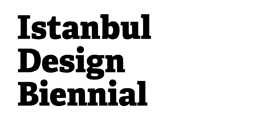NCR-04 (Horoscope), a text by Korhan Gümüş: This Transient World May Collapse in Only a Day
In his criticism of historicism, Quatremère de Quincy says that even though their forms are identical, “type” and “model” – which is based on type – are exact opposites of each other. Whilst the first one, “Type” is based on centreless reproduction, the latter, “model” is based on the repetition of a sample copy. This statement is closely related to the fundamental problematic of modernity: When the designer talks about something – even though it stands right before our eyes – he is in actual fact talking about something else. Thus that which is “represented” is reversed to become that which is “not represented”. The object talked about by the designer, or a likeness of it, is a thing that replaces it. Thus the representation is not a thing that stands inside the space along with other things, it is a substituted thing. When we look at it, in our minds, we are not seeing “it”, but the thing. This illusion establishes an invisible hierarchy among the things. Therefore the thing has to abandon the space, in other words not be seen where it is viewed. In this way, the thing that is talked about gains a maleability that can be given form by one’s hands.
In authoritarian communities, the masses are considered ignorant. But the main problem actually lies with the “middle class” that positions itself as a civilian community, assuming a state of conformity in order to gain the priviledges of this position. The true powerhouse of the authoritarian operation is this class representing itself as a civilian society. This class produces uniformity. Here we cannot talk about reality and thought as independent entities, but only chaos and confusion. This confusion is the source of the illusion about thoughts designing the world.
Middle class practices are produced by market mechanisms.The market tries to encapsulate cretive thinking inside an aesthetic regime. It obstructs the intervention to public operations, the liberation of the production of thought. It paralyses creative thinking to the extent that the function of creative thought is no longer appreciated within the boundaries of the market. It can even be perceived as a power that counteracts the course of development. The power holders take advantage of the vagueness of middle classes who are opportunistic and focused on repetition and conformity. This is what causes them to think that they can do anything as long as they have the consent of communities. They rarely refer to the intellectual milieu for any kind of nourishment. For they value nothing that is divergent or marginal and appreciate only what is ordinary and average. Their attitude towards intellectual practices is condescending and exclusive. However the problem does not lie with the content of the thought but with the hegemony over the thought. If you criticize one side, your respondents will jump to the conclusion that you belong to the other side. In this way, the dividing lines are drawn, the sides are decided and arbitrariness is camouflaged. This distortion is the guarantee of class-based hegemony. Thus it is not possible to perceive social issues through the logic of dependent functions. Behind social issues are repressed topics that are not freely discussed. Governmental powers use their own “divine baggage” to disguise the asymetry of social classes. Their actions and decisions lead to the polarization of the masses which they have mobilized. The political arena functions almost like a shelter fenced off with barbed wire. The public arena is deprived of politics and is easily invaded by the market forces that take advantage of the public arena’s secluded nature. To present the market as a free zone is deceptive. “National” powers that cannot open the public arena to freedom, participation and creativity in the face of global market forces, end up providing opportunities for invasive actions. The closing of the public arena to creative thought turns it into an unprotected hunting ground ready to be captured. The governmental powers’ claim for independence is only empty talk.
We are currently living in a world where the modernist canons are turning into wreckages. No matter how perfect its operations are, the regime of violence makes irreparable mistakes. The inefficiency of politics, the lack of solutions and alternatives all indicate the existence of another issue hiding behind all these problems. Namely the severity of the ideological division that disguises the asymmetry of social classes. The representational ability of governmental powers should be able to respond to democratic demands, but even that will not suffice by itself to attain the freedom of the masses. Creative thought is threatened by power relations. And this threat is not only against the arts, architecture and creative thought but also against the masses that are seemingly represented by the powers-that-be.
Amongst all the talk about how the public wouldn’t know and how the public wouldn’t understand, people are in fact crying out to be heard. This is a good sign. They are looking at the world through the eyes of the city. For those who cannot hear these cries, the world is merely a window now. After a certain while, maybe ten, maybe twenty years later, this regime of violence will no longer be considered normal, it will becomde democratized. This time, the dynamics of change are pointing in another direction. The 19th century walls of the regime are coming down. The cries are revealing a presence that breaks through the middle class canons. It is possible for design to rid itself from middle class laziness and opportunism. This transient world of merely three days can come tumbling down in only a day, or in three spans of time, one world can indeed be a home to all of us.









Leave a Reply